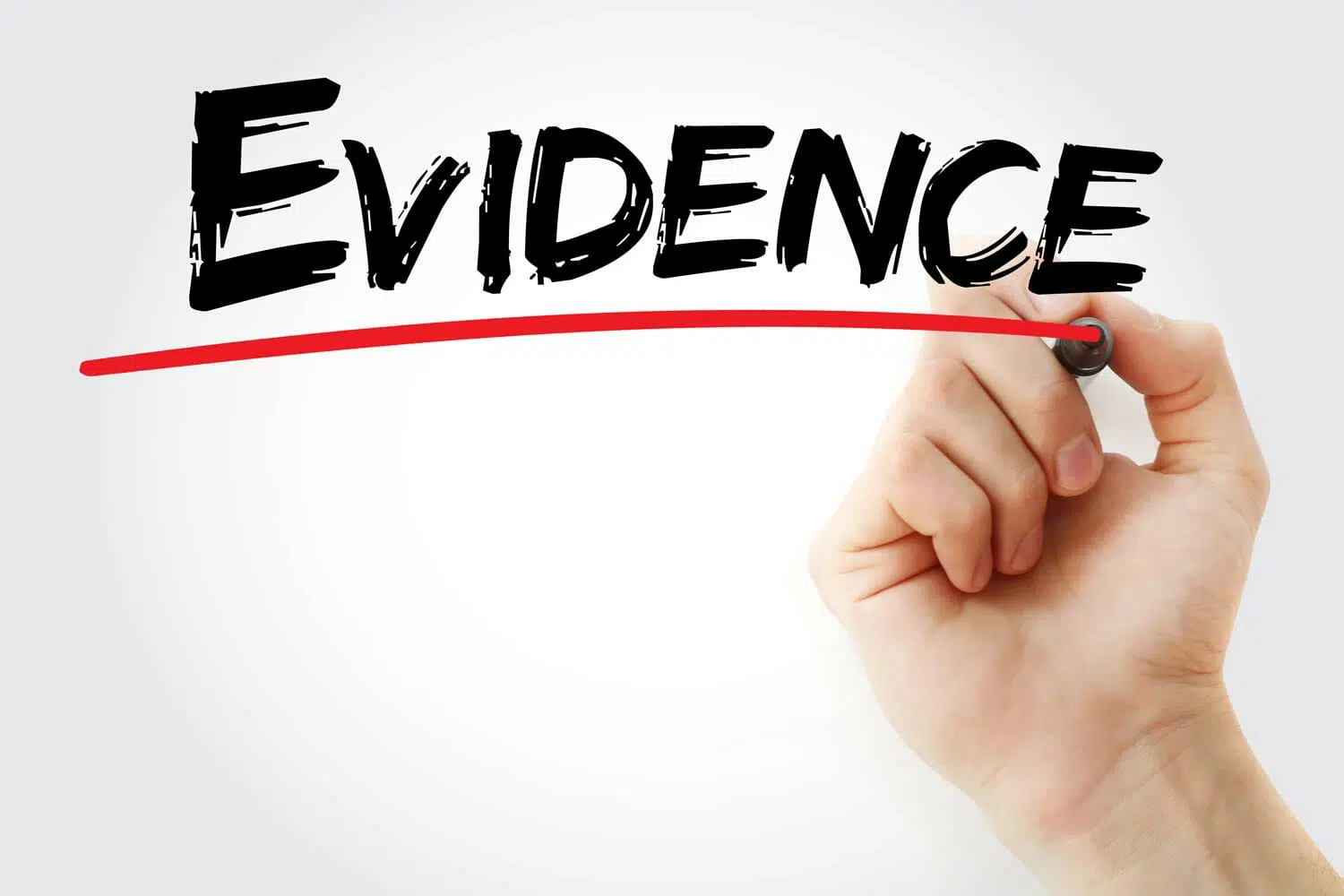The word “quiz” has often been claimed to be a purpose-built word to win a bet. Yet we have evidence from the Online Etymology Dictionary1 that this is not the case. Quiz was once used as a noun to describe a person who was a little … off, let’s say. Anyway, we thought you might like to brush up on your rules of evidence in family law cases using our handy Evidence 101 Quiz. Who knows? — Your future in a Virginia court may turn on how well you do.
Family Law Evidence For 100, Please
Which of these is admissible evidence in a Virginia Juvenile and Domestic Relations court?
- Secretly recorded videotapes, taken from a position on the sidewalk across the street from a motel, of your ex-wife entering said motel room with a man Distinctly Not You (D.N.Y.)
- A written account by a desk clerk of a motel, stating that she saw your ex-wife and a man D.N.Y. check into a room on a particular date
- Screenshots and entries from social media like Facebook, Instagram, Twitter and others, taken from your shared home computer, indicating your ex-wife was going to meet a man (D.N.Y.) at a particular motel on a particular day
- Statements your ex-wife made during her court-ordered parenting classes
- Forwarded texts you sent yourself from your wife’s password-protected cell phone, showing an exchange between your ex-wife and a man D.N.Y.
You may think we started off with something challenging, but believe us, evidence gets very tricky very fast. The correct answers were a) and c). How did you do?
Answer a) can be admitted as evidence because recording on a public sidewalk is legal, as is recording people in public (visibly heading into a motel room). Nobody has “a reasonable expectation of privacy” in public spaces, or open, private property visible to the public.
Answer c) is correct because you shared the electronic device with your spouse and no mention was made of a password or other means of keeping her posts private.
Why were answers b), d) and e) not admissible evidence, you wonder? The written account, b), is hearsay. The parenting class chatter, d), is inadmissible under Code of Virginia § 16.1-278.15.
The password-protected device, answer e), is off limits thanks to a hoary old document called The Fourth Amendment to the United States Constitution (unreasonable search and seizure).
Evidence of Child Abuse for 200, Please
Suppose you suspect your wife, during her visitations with your kids, is mistreating them. You gave her the keys to your vacation cabin at Smith Mountain Lake. Junior LeRoy Jethro Gibbs (famed NCIS television detective) that you are, you decide to pay a quiet visit to the cabin to see what you can see. You remember that gap between the stone chimney and the wooden wall, so you park yourself there. You peek in and see her interacting with the kids, and every now and again she appears to smack them! You use your cell phone and film her smacking the kids’ hands. Aha! You scurry back to your lawyer, delighted to have caught her in the act.
Is your evidence admissible? Not according to Code of Virginia § 18.2-130, colorfully entitled, “Peeping or spying into dwelling or enclosure.” If you try instead to describe what you saw, you broke the same law. (Your wife could also point out she was high-fiving your kids for their Jenga mastery.)
And that recording you made? It violates Code of Virginia § 18.2-386.1. (“Unlawful creation of image of another; penalty.”) That same law prevents you from videotaping, spying on or recording in any way your wife and a sleazy guy D.N.Y. without their consent.
Well, What CAN You Use as Evidence in Family Law?
Frustrated, aren’t you? You want to get the goods on your ex-wife, to win custody, or to reduce spousal support. Whatever your goal, evidence will help. Yet Virginia is, rightly so, fastidious about that evidence. What can you bring to a family law proceeding?
- Medical evidence — Under Code of Virginia § 16.1-245.1 you can make a case for abuse or neglect using all medical records, test results, and reports
- Genetic test results — Under Code of Virginia § 20-49.3, aptly titled, “Admission of genetic tests.”
- Testimony from Grandma in Zap, North Dakota — Especially in child custody cases, Code of Virginia § 20-146.10 (“Taking testimony in another state.”) allows for convenience in getting witnesses
- School Records — Code of Virginia § 8.01-390.1, if the school records are authenticated
Thank you for playing along. We hope before you go off and try to gather evidence without the expert advice of your family law and divorce attorney, you consider how you would have done if this had been a real quiz show or a real Virginia court. Evidence is tricky stuff, since it is governed by the U.S. Constitution, federal laws, and the Code of Virginia.
Protect Your Rights: Call The Firm For Men
By calling 757-383-9184 to reach The Firm For Men, you are well on your way to getting the legal protections and investigations you need to fight your family law case. Our aggressive family law attorneys defend the rights of Virginia’s men, from presenting evidence of spousal infidelity to refuting false claims by angry ex-wives. Contact us online or telephone today.
1. http://www.etymonline.com/word/quiz


